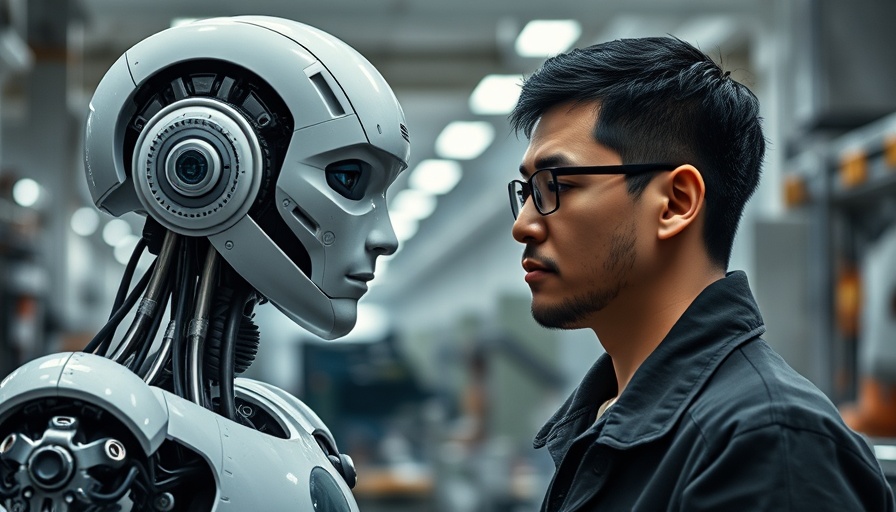
The Work Ethic in the Age of AI
The rise of artificial intelligence (AI) has ushered in a transformative era for how we perceive work and productivity. In this context, the old adage of 'hard work pays off' is being challenged by the rapidly evolving technological landscape that often prioritizes efficiency over human engagement. As showcased in the DW Documentary "How AI is changing our relationship to work," the relentless grind for employment has become a cultural norm that's deeply rooted in societal values.
In 'How AI is changing our relationship to work,' the documentary delves into the transformative impact of technology on employment, prompting us to analyze these key themes further.
Understanding the Cultural Pressure
Across various cultures, a profound attachment to work exists. For many, like the father in the documentary, work isn't just a means to an end; it’s an integral part of their identity. In places like Korea, where the social fabric encourages extensive hours at the office, such dedication often leads to a loss of personal relationships and fulfillment. This cultural pressure can breed a toxic environment where busyness is worn as a badge of honor, despite the psychological costs.
The Impacts of Performativity on Workplaces
Performativity in work—where people feel the need to showcase their labor through busy schedules—creates a cycle where taking breaks or enjoying leisure can induce guilt. This psychological phenomenon is exacerbated in capitalist societies, where the value of a person is often equated to their productivity. The documentary draws attention to shocking statistics: 85% of global employees report feeling disengaged at work, leading to a quest for purpose that often goes unfulfilled. Without a meaningful connection to their labor, many workers find themselves trapped in a dehumanizing system driven by technology.
Rethinking the Future of Work
As we embrace AI, the question arises: can technology liberate us from the shackles of work? Automation is poised to replace millions of jobs globally, leading to a critical debate about relevance versus exploitation in the workforce. However, experts argue that AI's true potential lies not in eliminating jobs, but in reshaping them to enhance our capacity for creative and meaningful activities. The call for a shift from a work-based society to one that values leisure and purpose emerges as a vital response to the challenges posed by technological advancements.
The DW documentary brilliantly encapsulates these themes, urging audiences to reconsider their relationship with work as we navigate a future dominated by artificial intelligence. Are we heading toward liberation or further entrenchment in a work-centric culture? It’s imperative for societies to evaluate these questions seriously, especially in forming policies that advocate for a balanced life amid rising technological influence.
As we reflect on these insights, it’s clear that the conversation surrounding AI and our work should be approached with caution and imagination, recognizing the potential for redefined values in our labor practices. The future beckons us to envision work as a platform for creativity and community rather than mere servitude to a relentless clock.
 Add Row
Add Row  Add
Add 




Write A Comment